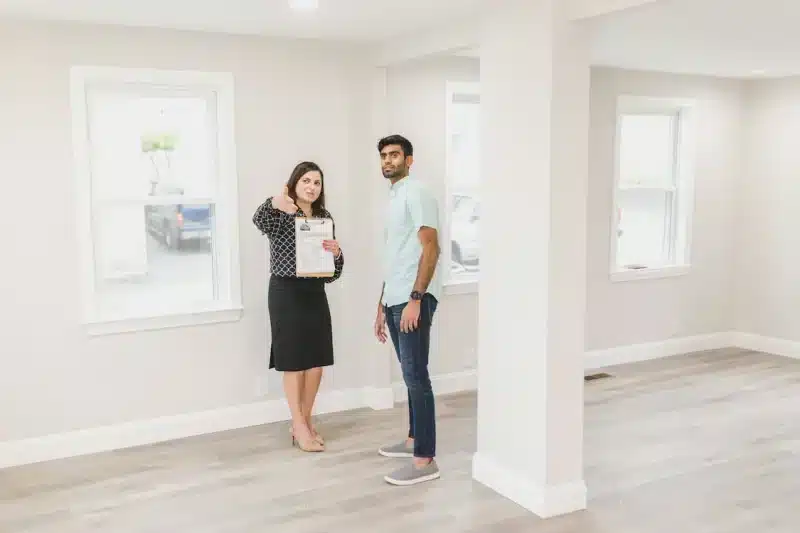
Selling a home is one of the most significant financial decisions you’ll make, and naturally, every homeowner wants to achieve the best possible outcome. Whether you’re moving to accommodate a growing family, downsizing for retirement, or relocating for work, securing a profitable deal is a priority. Once you decide to sell your home, it’s crucial to follow a series of strategic steps to ensure the sale goes smoothly.
This article will guide you through nine essential actions you must take to maximize your home’s appeal, streamline the selling process, and ultimately close a profitable sale.
1. Research the Market and Set Realistic Expectations
Before listing your home, it’s crucial to understand the current market dynamics. Begin by investigating recent sales in your neighborhood to assess demand and pricing trends. Look at how quickly homes are selling and whether they are selling above or below the asking price. This information will give you a clearer picture of the local market conditions.
Use comparable properties (comps) to establish a realistic price range for your home. Comps should be similar in size, age, and condition to your property and ideally located within the same or a comparable neighborhood. Consider factors such as the number of bedrooms and bathrooms, lot size, and any unique features like a swimming pool or a finished basement.
Avoid overpricing your home, as it can lead to it sitting on the market for too long, potentially resulting in lower offers or a need to reduce the price later. On the other hand, underpricing can lead to a quicker sale but might not maximize your profit. Striking the right balance is key.
Additionally, consider the time of year when setting your price and listing your home. Certain times of the year, such as spring and early summer, are typically more active in the real estate market, which might influence your pricing strategy and expectations.
Lastly, be aware of broader economic factors that could impact the housing market, such as interest rates, employment rates, and economic growth. These factors can influence buyer confidence and spending power, thereby affecting how quickly your home might sell and at what price.
By thoroughly researching the market and setting realistic expectations, you’ll be better positioned to price your home competitively and attract serious buyers.
2. Hire the Right Realtor
Finding a skilled realtor is essential for navigating the intricacies of the real estate market. While you can download property documents, such as deeds, from various online services, only a knowledgeable realtor can guide you through local market trends, pricing strategies, and negotiation techniques.
Comparative Market Analysis (CMA):
A good agent will conduct a Comparative Market Analysis (CMA) to determine a realistic listing price based on recent sales in your area and your property’s unique features. This analysis will provide a detailed comparison of your home to similar properties, helping you set a competitive and attractive price.
Crafting Compelling Listings:
An experienced realtor knows how to write compelling property descriptions that attract buyers. They will emphasize your home’s unique features, recent upgrades, and nearby amenities to create an appealing narrative that captures buyers’ interest.
Negotiation Expertise:
A skilled realtor excels in negotiation, helping you secure the best possible deal. They understand market trends and buyer behavior, allowing them to effectively counteroffer and negotiate terms. Their experience ensures that you navigate the negotiation process smoothly, avoiding common pitfalls.
Choosing the Right Realtor:
When searching for the right realtor, look for an agent with a proven track record, strong local knowledge, and excellent communication skills. Here are some steps to ensure you choose the best fit:
- Interview Multiple Candidates: Don’t settle for the first agent you meet. Interview multiple candidates to compare their experience, strategies, and compatibility with your goals.
- Read Reviews: Look for online reviews and testimonials from previous clients. These can provide insights into the agent’s reliability, professionalism, and success rate.
- Request References: Ask for references from previous clients to get a first-hand account of their experience working with the realtor.
- Check Credentials: Ensure the realtor is licensed and has no disciplinary actions on their record. Membership in professional organizations, such as the National Association of Realtors (NAR), can also be a good sign of credibility and commitment to high standards.
By taking these steps, you can find a realtor who will effectively represent your interests, provide valuable market insights, and guide you through a successful home sale.
3. Declutter and Depersonalize Your Space
Decluttering and depersonalizing your home are essential steps in creating a clean, neutral space that appeals to potential buyers. These efforts help buyers envision themselves living in your home, making it more likely to sell quickly and at a desirable price.
Remove Personal Items: Begin by removing excess personal items, such as family photos, memorabilia, and collections. Personal touches can make it harder for buyers to imagine themselves in the space. Store away any items that are distinctly yours to create a more neutral environment.
Clear Excess Furniture and Clutter: Consider renting a storage unit for excess furniture, personal collections, and seasonal items. Overcrowded rooms can make your home feel smaller and less inviting. By removing unnecessary items, you create a sense of space and order that appeals to buyers. Aim to showcase the potential of each room with a functional and spacious layout.
Simplify Decor: Keep your decor simple, focusing on neutral colors and minimalist designs. Neutral tones create a blank canvas that allows buyers to imagine their own style in the space. Avoid bold colors and overly personalized decor that might distract or turn off potential buyers. Instead, opt for light, airy, and universally appealing design elements.
Organize Closets and Storage Spaces: Buyers are interested in storage space, so make sure your closets and storage areas are well-organized. Remove at least half of the items from your closets to create the impression of ample storage space. Use storage bins and organizers to keep everything tidy and accessible.
Clean and Freshen Up: A clean home is a must. Deep clean every room, including carpets, windows, and appliances. Pay special attention to areas that might not be part of your regular cleaning routine, such as baseboards and light fixtures. Consider professional cleaning services to ensure your home is spotless. Additionally, eliminate any odors that could be off-putting to buyers by using air purifiers, baking soda, or essential oils.
Highlight Key Features: Arrange furniture and decor to highlight your home’s best features. For example, if you have a beautiful fireplace, make it a focal point by arranging seating around it. If your home has large windows with great views, make sure the windows are clean and unobstructed. Showcasing these features can help buyers see the unique advantages of your home.
Create a Welcoming Atmosphere: Make your home feel welcoming and comfortable. Small touches, like fresh flowers, new towels in the bathroom, and a neatly set dining table, can create a warm and inviting atmosphere. These details help buyers form a positive impression of your home.
By decluttering and depersonalizing your space, you create a more attractive and inviting environment that allows potential buyers to see themselves living in your home. This strategic preparation can significantly enhance your home’s appeal and increase your chances of a successful sale.
4. Complete Necessary Repairs and Maintenance
Before listing your home, addressing any visible issues that could deter buyers is crucial. Ensuring your property is in excellent condition can significantly impact its marketability and the offers you receive.
Fix Visible Issues:
Start by fixing minor but noticeable problems such as leaky faucets, cracked tiles, and broken door handles. These small repairs can make a big difference in how buyers perceive your home. Simple fixes can enhance your home’s overall appeal and demonstrate that it has been well-maintained.
Repaint Walls:
Consider repainting walls in neutral tones to freshen up the space. Neutral colors like white, beige, or light gray can make rooms feel more spacious and inviting. They also provide a blank canvas, allowing potential buyers to envision their own decor and style.
Inspect Major Systems:
Ensure that major systems like HVAC, plumbing, and electrical are in good working order. Have these systems inspected by professionals to identify and address any issues before listing your home. Buyers will often request inspections, and ensuring these systems are in top condition can prevent objections and renegotiations during the closing process.
Upgrade Outdated Elements:
If your roof, windows, or appliances are outdated or in disrepair, consider replacing or upgrading them to boost your home’s marketability. Modern, energy-efficient appliances and windows can be attractive selling points. Additionally, a new roof can alleviate potential buyer concerns about future expenses and maintenance.
Check Structural Integrity:
Inspect your home’s foundation, walls, and ceilings for any signs of structural issues such as cracks or water damage. Addressing these problems upfront can prevent them from becoming deal-breakers during the buyer’s inspection.
5. Boost Curb Appeal
First impressions matter, so enhancing your home’s curb appeal is essential to attract potential buyers. Investing in the exterior appearance of your home can significantly increase its perceived value and make a lasting impression.
Landscaping:
Start with landscaping to create a welcoming and well-kept appearance. Plant fresh flowers, trim bushes, and maintain the lawn. Consider adding mulch to garden beds for a polished look. Choose a mix of colorful annuals and perennials to create visual interest throughout the seasons. Regularly mow the lawn, edge pathways, and remove weeds to keep the yard looking neat and tidy.
Repaint the Front Door:
A fresh coat of paint on the front door can significantly enhance your home’s curb appeal. Choose a color that complements the overall color scheme of your home while adding a pop of interest. Bold colors like red, navy blue, or deep green can create a striking focal point.
Clean Up the Driveway and Walkways:
Ensure that your driveway and walkways are clean and free of cracks or stains. Power wash these surfaces to remove dirt, oil stains, and debris. Repair any cracks or damage to create a smooth and inviting path to your home.
Remove Debris and Personal Decorations:
Clear away any debris, such as fallen leaves, branches, or clutter. Remove personal decorations like lawn ornaments or excessive signage that might distract from the overall appeal of your home. Aim for a clean, uncluttered look that allows buyers to focus on the property’s features.
Power Wash Siding and Clean Windows:
Power wash the siding to remove dirt, grime, and mildew, giving your home a fresh and clean appearance. Clean the windows inside and out to ensure they sparkle. Clean windows allow more natural light to enter the home and improve its overall presentation.
Add Outdoor Lighting:
Install outdoor lighting to highlight your home’s best features and improve safety. Pathway lights, accent lights, and porch lights can make your home more attractive, especially during evening showings. Well-placed lighting can also enhance landscaping features and create a warm, inviting ambiance.
Upgrade House Numbers and Hardware:
Consider upgrading your house numbers, mailbox, and exterior hardware such as door handles and light fixtures. These small details can make a big difference in the overall appearance of your home. Choose modern, stylish options that complement your home’s design.
Enhance the Porch Area:
If your home has a porch, make it inviting by adding a few pieces of tasteful furniture, such as a bench or chairs with cushions. Add potted plants or hanging baskets for a touch of greenery. Ensure the porch is clean, well-maintained, and free of clutter.
Seasonal Touches:
Incorporate seasonal touches to enhance curb appeal. For example, in spring, add a wreath made of fresh flowers to the front door. In fall, consider a display of pumpkins and autumnal decorations. These seasonal accents can make your home feel welcoming and current.
By investing in your home’s curb appeal, you create an inviting and attractive exterior that draws buyers in and sets a positive tone for the rest of the viewing experience.
6. Stage Your Home to Highlight Its Best Features
Staging is a critical step that can greatly influence how quickly and profitably your home sells. A well-staged home creates a welcoming and aspirational environment that allows potential buyers to envision themselves living there.
Consider Professional Staging:
If your budget permits, consider hiring a professional stager. Professional stagers are skilled at arranging furniture, decor, and accessories to highlight your home’s best features. They can bring in rental furniture and decor items that elevate the space, making it more appealing to a broader audience. Professional staging often results in quicker sales and higher offers.
Strategic Furniture Arrangement:
Arrange the furniture strategically to ensure each room has a clear purpose and logical flow. Define each space with appropriate furnishings to help buyers understand how they can use each area. For example, set up a home office in a small bedroom or create a cozy reading nook in an unused corner.
Stage Key Rooms:
Focus on staging key rooms that have the most impact on buyers, such as the living room, kitchen, master bedroom, and bathrooms. These rooms are often the deciding factors for buyers and should be presented in their best light.
By staging your home to highlight its best features, you create an attractive and inviting environment that appeals to potential buyers, ultimately leading to a quicker and more profitable sale.
7. Market Your Home Effectively
Effective marketing is critical for attracting potential buyers and generating interest in your property. A strong marketing plan should combine both online and offline strategies to maximize reach and impact.
Professional Photography and Videography:
High-quality photos and videos are essential for showcasing your home. Consider investing in professional photography and videography to capture your home in its best light. Professional images can significantly enhance your online listings and make your property stand out. A video tour or virtual walkthrough can also provide potential buyers with a comprehensive view of your home, encouraging them to schedule an in-person visit.
Craft a Compelling Listing Description:
Write a compelling listing description that highlights your home’s best features, recent upgrades, and nearby amenities. Be sure to include accurate information about the number of bedrooms, bathrooms, and square footage. Emphasize unique selling points such as a renovated kitchen, spacious backyard, or energy-efficient appliances. Use descriptive language to create an inviting and attractive narrative that captures buyers’ interest.
Utilize Online Listings:
List your home on multiple online platforms, including popular real estate websites like Zillow, Realtor.com, and Redfin. Ensure your listings are complete with detailed descriptions, high-quality photos, and video tours. The more information and visuals you provide, the easier it is for potential buyers to envision themselves in your home.
Leverage Social Media:
Social media is a powerful tool for marketing your home. Share your listing on platforms like Facebook, Instagram, and Twitter to reach a broad audience. Use engaging captions, high-quality images, and hashtags relevant to your area and property type. Consider creating a dedicated post for each platform and using features like Facebook Marketplace or Instagram Stories to increase visibility.
Run Targeted Ads:
Consider running targeted ads on social media and search engines to reach potential buyers actively looking for homes in your area. Platforms like Facebook and Google Ads allow you to target specific demographics, locations, and interests, ensuring your listing reaches the right audience.
Host Open Houses and Virtual Tours:
Host open houses to allow potential buyers to explore your home in person. Promote these events through online listings, social media, and local advertisements. For buyers who cannot attend in person, offer virtual tours or live video walk-throughs to provide an immersive experience from anywhere.
By implementing a comprehensive and strategic marketing plan, you can effectively attract potential buyers, generate interest in your property, and increase the likelihood of a successful and profitable sale.
8. Be Prepared for Negotiations
Negotiating with buyers is a critical part of selling your home. Understanding the negotiation process and preparing for various scenarios will help you secure the best deal possible. Here’s how to navigate this crucial phase effectively:
Expect Initial Offers:
Expect buyers to submit offers below your asking price; don’t be discouraged by these initial offers. View them as starting points for negotiation rather than rejections. Remember, buyers often start low in hopes of finding room to negotiate.
Develop a Negotiation Strategy:
Work with your realtor to develop a negotiation strategy tailored to your market and your specific situation.
Know Your Bottom Line:
Determine your bottom line before negotiations begin. This is the minimum price you are willing to accept. Knowing this in advance helps you make clear-headed decisions and avoid being swayed by emotional reactions during the negotiation process.
Be Ready to Compromise:
While it’s important to know your bottom line, be prepared to make compromises to reach a mutually beneficial agreement. Common areas for compromise include the sale price, closing date, and contingencies such as repairs or inspections. Flexibility can help you keep the deal moving forward and close the sale.
Offer Incentives:
Consider offering incentives to make your property more attractive to buyers. These can include covering closing costs, providing a home warranty, or including appliances and furniture in the sale. Incentives can sweeten the deal and encourage buyers to meet your terms.
Stay Calm and Professional:
Maintain a calm and professional demeanor throughout the negotiation process. Emotional reactions can hinder productive negotiations. Trust your realtor to handle communications and present counteroffers clearly and effectively.
9. Review Offers and Close the Deal
Once offers start coming in, carefully evaluate each one to choose the best option that aligns with your goals. Consider the following factors:
- Financing Contingencies: Assess the buyer’s financing situation. An offer with uncertain financing or a lengthy closing period might not be the best choice, even if the price is higher.
- Inspection Clauses: Be aware of any inspection clauses. Buyers may request repairs or credits based on the inspection results.
- Closing Timelines: Evaluate the proposed closing date. A quicker closing can be advantageous, but ensure it aligns with your own timeline and needs.
After Accepting an Offer:
- Handle Inspections: Coordinate with your realtor, attorney, and the buyer’s agent to manage inspections. Be prepared to negotiate repairs or credits if issues are found.
- Title Searches and Paperwork: Work with professionals to conduct title searches and handle the legal paperwork required for closing. Ensure all documents are accurate and complete.
- Final Negotiations: If the inspection reveals issues, be ready to negotiate further. Address major concerns to keep the deal on track.
Conclusion
Selling a home can be a complex process, but by following these steps, you can ensure a smoother, more profitable sale. From staging and marketing your property effectively to navigating negotiations and choosing the best offer, each step plays a vital role in achieving your goals. By preparing strategically and working with experienced professionals, you can confidently navigate the real estate market and sell your home for the best possible price.








